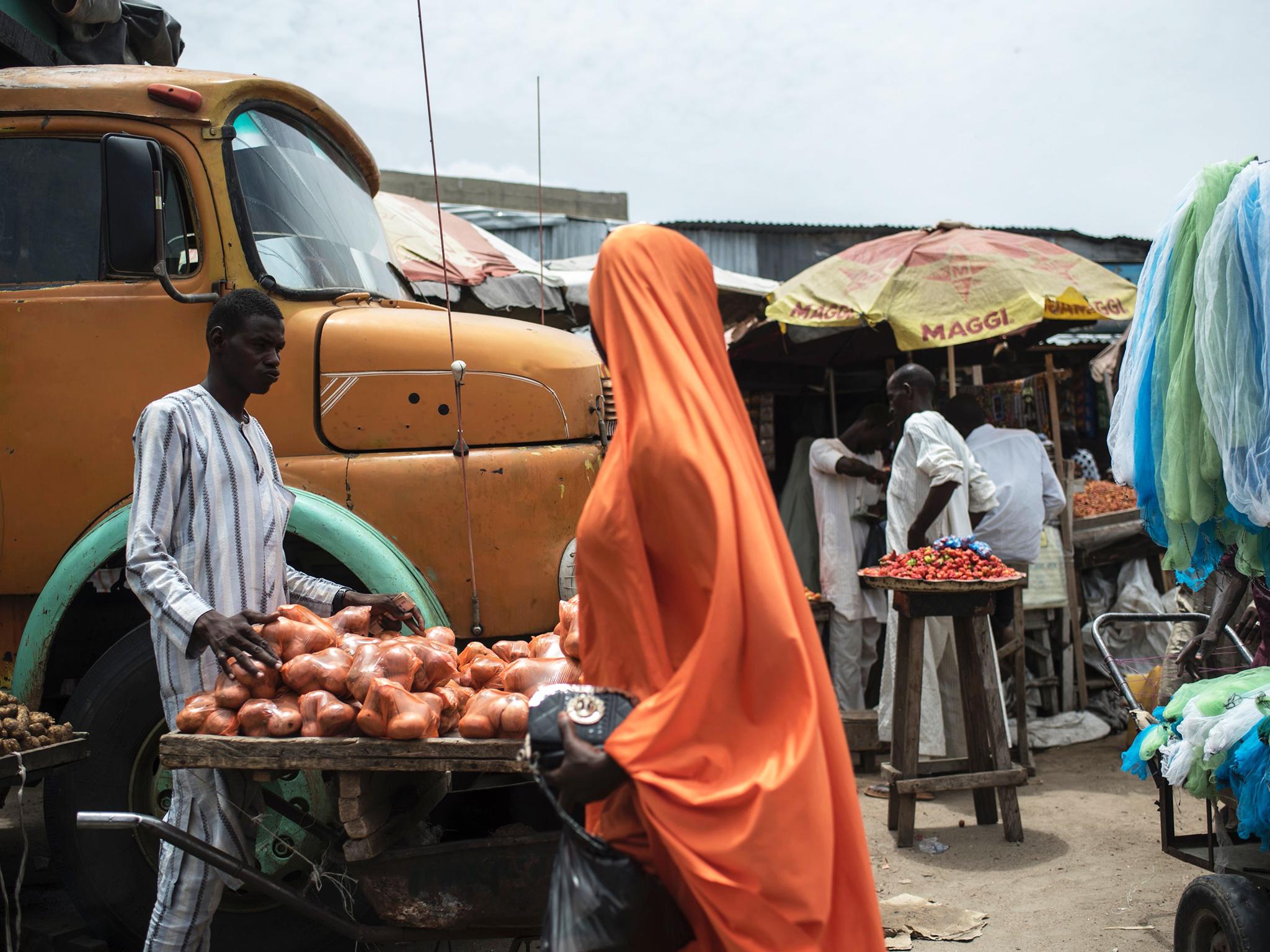Boko Haram: Huge rise in children used as 'human bombs' by Islamists in Nigeria, UN warns
Young victims of the group are encouraged to go to busy areas, including markets, before the bombs they carry are triggered

Your support helps us to tell the story
From reproductive rights to climate change to Big Tech, The Independent is on the ground when the story is developing. Whether it's investigating the financials of Elon Musk's pro-Trump PAC or producing our latest documentary, 'The A Word', which shines a light on the American women fighting for reproductive rights, we know how important it is to parse out the facts from the messaging.
At such a critical moment in US history, we need reporters on the ground. Your donation allows us to keep sending journalists to speak to both sides of the story.
The Independent is trusted by Americans across the entire political spectrum. And unlike many other quality news outlets, we choose not to lock Americans out of our reporting and analysis with paywalls. We believe quality journalism should be available to everyone, paid for by those who can afford it.
Your support makes all the difference.There has been a fourfold increase in the number of children used as bombers in northeast Nigeria this year, the United Nations Children’s Agency (Unicef) has said.
Since the start of the year at least 83 children have been used as "human bombs" in attacks on civilians and Nigerian military checkpoints, the agency said, with most incidences claimed by the Islamist militant group Boko Haram. Of these, 55 were girls, 27 were boys, and one was a baby strapped to a girl. Most of the girls were under 15.
Military officials in northeast Nigeria say the children are often encouraged to go to busy areas, including markets, while the explosives they carry are sometimes triggered from a distance. Occasionally, children get scared approaching checkpoints and detonate the bombs without injuring anyone else.
Aid workers prefer to describe such incidents as the use of "human bombs" rather than referring to the children as suicide bombers. "Children used as ‘human bombs’ are, above all, victims, not perpetrators," Unicef said in a statement on Tuesday.
The latest figures show a huge rise from 2016, when Unicef documented 19 cases where children were used as bombers in northeast Nigeria and neighbouring Niger, Cameroon and Chad. Of these, 15 were girls and four were boys.
Teenagers who've escaped the group have reported being paid as little as 50p to carry out attacks by militants who promise they will go directly to heaven afterwards.
Since its insurgency began in 2009, Boko Haram has aimed to carve out a caliphate in Nigeria’s northeast and neighbouring countries. More than two million people have been displaced as the group has gained and lost territory across the region.
While the insurgents once controlled an area of land roughly the size of Belgium, a Nigerian military push in 2015 forced them back to camps in rural areas including the Sambisa Forest. This loss of territory has been accompanied by an increase in guerilla tactics and bombing designed to terrorise civilians.
In February, Kashim Shettima, the governor of Borno State, one of the worst affected areas, put the death toll from the eight-year conflict at almost 100,000.
More than 10,000 children have gone missing over that period, according to Unicef, while officials say around 40,000 children are now orphans.
Speaking to The Independent in June, Commissioner of Higher Education for Borno State Ahmed Jaha warned that if orphans are left on the streets and aren't given any schooling "they'll be a disaster that is going to consume everyone."
In its statement, Unicef said Boko Haram's use of children as bombers also has an impact on minors who have been released, rescued or escaped from Boko Haram. “Many children who have managed to get away from captivity face rejection when they try to reintegrate into their communities, compounding their suffering."
“All of this is taking place in the context of a massive displacement and malnutrition crisis – a combination that is also deadly for children.”
Alongside the brutal conflict, northeast Nigeria is experiencing a major humanitarian crisis. Some 450,000 children are expected to suffer from life-threatening malnutrition this year alone.
Join our commenting forum
Join thought-provoking conversations, follow other Independent readers and see their replies
Comments